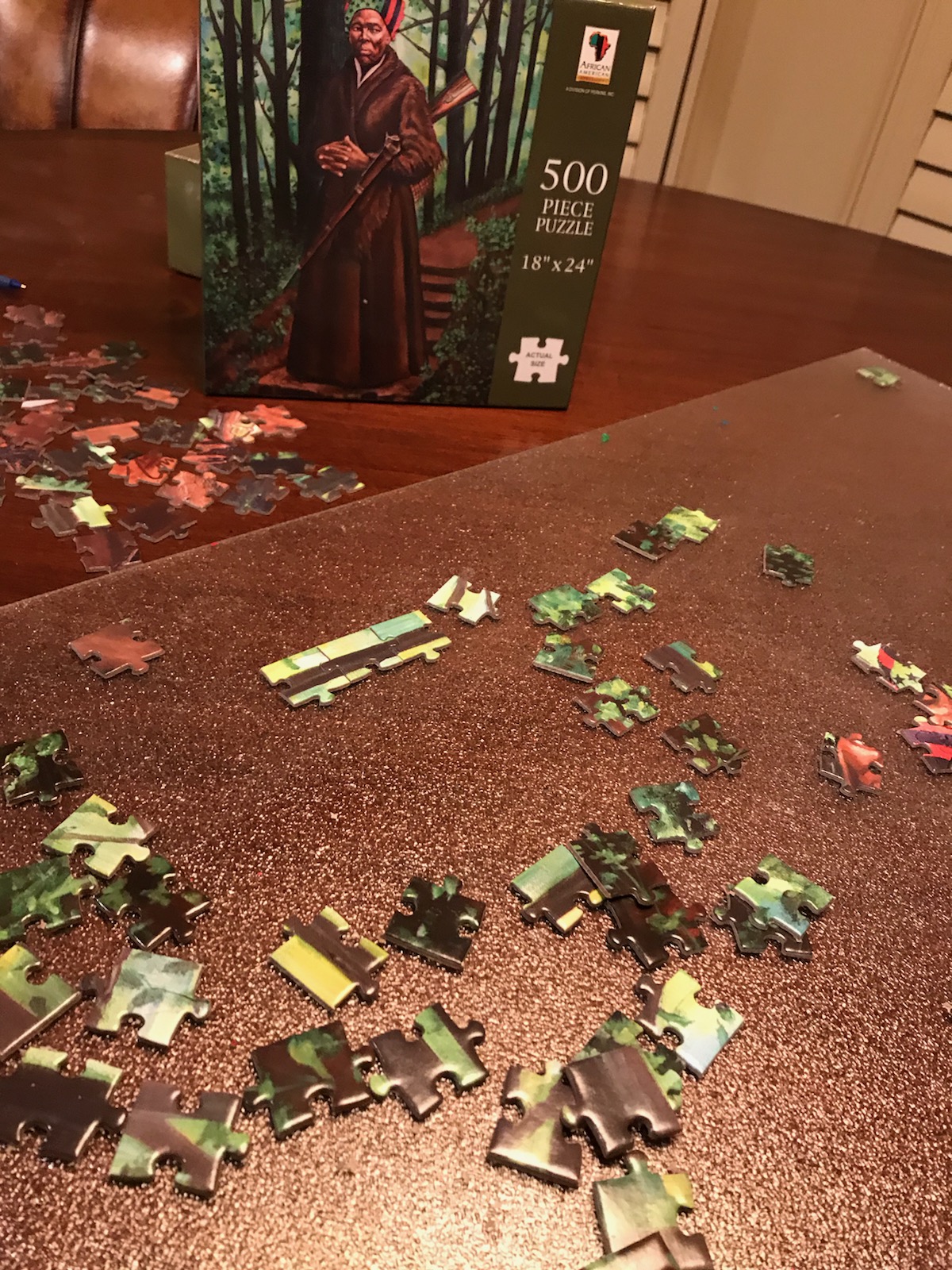Black History
How African American History Became A Fun Pastime During The Pandemic

Now that the CDC has given Americans who are fully vaccinated the go-ahead to resume most activities without masks or social distancing, those who discovered jigsaw puzzles during the pandemic wonder if that means the pastime, too, goes back on the shelf.
Gabby Jacobs discovered a knack for jigsaw puzzles during quarantine, earning her stripes on a 500-piece Harriet Tubman tribute.
“The puzzle was no easy feat,” Jacobs said. “I mean, risking your life to lead dozens of the enslaved from plantations to freedom is far more challenging, but the puzzle did, indeed, have me stumped.”
The 30-year-old nonprofit professional gathered around the table with her family on New Year’s Eve to enjoy each other and pay homage to Tubman.
“The challenge wasn’t the fact that the puzzle was 500 pieces – the issue was the colors. All the brown and green pieces seemed never-ending. At one point, I actively searched for the end to the puzzle underneath the dining table and only found, well, more puzzle pieces,” she recalled with a smile.
Tubman’s garment in the puzzle matched her skin tone, making it a study in shades of brown. And over the past few years, African Americans are looking for images of themselves on puzzles, leading to a new niche market for puzzle makers.
Matthew Goins, who is African American started his online company in 2018, Puzzle Huddle, when he and his wife were unable to find puzzles showing Black children for their three little ones. According to the company’s website, “Matthew began by printing images from the internet and hand-cutting puzzles at home with a pair of scissors. Eventually he found commercial printers to manufacture puzzles with images he commissioned from different artists.” Goins and Puzzle Huddle have been featured on NPR and in Black Enterprise.
Toy industry experts said the pandemic caused a worldwide shortage of jigsaw puzzles. Goins was already in business, but the added demand for puzzles specific to African American culture presented others with an opportunity. A sister-brother team, Erica Chambers and William Jones, in Dallas started their puzzle company in their garage during the coronavirus. The two had grown up putting together puzzles and decided the industry lacked African American representation and named their new business “Puzzles of Color.”
“It’s all about that representation. You don’t feel like an other,” Chambers told KENS-TV. “You feel like you are a part of the world you live in.”
“Five-hundred to a 1,000 pieces at a time,” quipped Jones.
For Jacobs who will return to in-work person in the coming months, she will do so with a new hobby.
She explained, “African American-centric puzzles evoke a great deal of emotion while sharing an important piece of a major story with those who are willing to journey through it. Although the best part of any puzzle is the end, working on them is a feel-good experience with my family that’ll remain unmatched.”
And, don’t forget the snacks, she advises. They, too, are an important piece of the family entertainment puzzle.

-

 Featured10 months ago
Featured10 months agoCalifornia Is the First State to Create A Public Alert for Missing Black Youth
-

 Featured10 months ago
Featured10 months agoAfrican American Leaders Stay the Course Amid Calls for President Biden To Bow Out of Race
-

 Featured10 months ago
Featured10 months agoThe Debate Fallout Lands on Both Candidates
-

 Featured9 months ago
Featured9 months agoPresident Joe Biden Decides to Withdraw from the Presidential Race
-

 Featured9 months ago
Featured9 months agoIn One of His Final Speeches as President, Biden Says It’s Time for ‘Fresh Voices’
-

 Featured9 months ago
Featured9 months agoPresident Joe Biden Describes Shooting of Donald Trump As ‘Sick’

